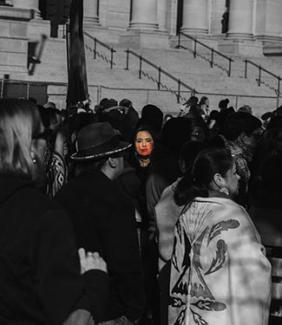Every March, the United States celebrates Women's History Month to focus on the contributions and accomplishments of all women, both in historical and contemporary society. Recognizing the achievements of women in all facets of life – science, community, government, literature, art, sports, medicine – has an impact on changing the trajectory of the American historical narrative.
On March 8, NRCDV recognized International Women’s Day, a global day dedicated to celebrating the social, economic, cultural, and political achievements of women and promoting action for further social transformation, in partnership with the National Indigenous Women’s Resource Center (NIWRC). We honored the survival and resilience of our Indigenous sisters, grandmothers, mothers, daughters, and aunties despite enduring generations of forced colonization and genocide. Homicide is a leading cause of death for Native women, and compared to their white counterparts, Native women are five times as likely to have experienced physical violence by a non-Native intimate partner.
Missing and Murdered Indigenous Women and Girls (MMIWG) continues to be a serious crisis within the United States. Together, we call for prayer and healing in response to this violence, but we also demand meaningful legislative reforms that remove barriers to safety for Indian women by recognizing and strengthening the sovereign ability of all tribal nations to protect Indian women and their children.
We invite you to pause and reflect on women who have inspired you, and consider how you honor them in your work for justice and peace.














